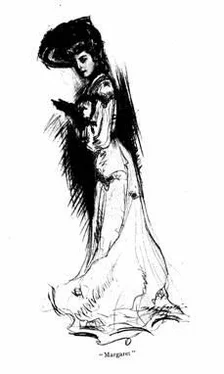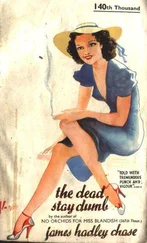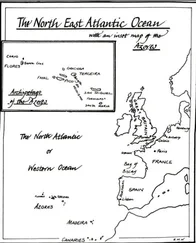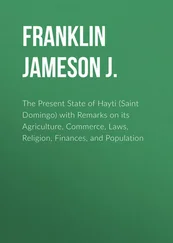James Cabell - The Eagle's Shadow
Здесь есть возможность читать онлайн «James Cabell - The Eagle's Shadow» весь текст электронной книги совершенно бесплатно (целиком полную версию без сокращений). В некоторых случаях можно слушать аудио, скачать через торрент в формате fb2 и присутствует краткое содержание. Жанр: Современная проза, на английском языке. Описание произведения, (предисловие) а так же отзывы посетителей доступны на портале библиотеки ЛибКат.
- Название:The Eagle's Shadow
- Автор:
- Жанр:
- Год:неизвестен
- ISBN:нет данных
- Рейтинг книги:4 / 5. Голосов: 1
-
Избранное:Добавить в избранное
- Отзывы:
-
Ваша оценка:
- 80
- 1
- 2
- 3
- 4
- 5
The Eagle's Shadow: краткое содержание, описание и аннотация
Предлагаем к чтению аннотацию, описание, краткое содержание или предисловие (зависит от того, что написал сам автор книги «The Eagle's Shadow»). Если вы не нашли необходимую информацию о книге — напишите в комментариях, мы постараемся отыскать её.
The Eagle's Shadow — читать онлайн бесплатно полную книгу (весь текст) целиком
Ниже представлен текст книги, разбитый по страницам. Система сохранения места последней прочитанной страницы, позволяет с удобством читать онлайн бесплатно книгу «The Eagle's Shadow», без необходимости каждый раз заново искать на чём Вы остановились. Поставьте закладку, и сможете в любой момент перейти на страницу, на которой закончили чтение.
Интервал:
Закладка:
"And while 'Tell the truth and shame the Devil' is a very pretty sentiment, it need not necessarily mean anything. The Devil, if there be a personal devil—and it has been pointed out, with some show of reason, that an impersonal one could scarcely carry out such enormous contracts—would, in all probability, rather approve than otherwise of indiscriminate truth-telling. Irritation is the root of all evil; and there is nothing more irritating than to hear the truth about one's self. It is bad enough, in all conscience, to be insulted, but the truth of an insult is the barb that prevents its retraction. 'Truth hurts' has all the pathos of understatement. It not only hurts, but infuriates. It has no more right to go naked in public than any one else. Indeed, it has less right; for truth-telling is natural to mankind—as is shown by its prevalence among the younger sort, such as children and cynics—and, as Shakespeare long ago forgot to tell us, a touch of nature makes the whole world embarrassed."
At this point Mrs. Haggage sniffed. She considered he was growing improper. She distrusted Nature.
"Truth-telling, then, may safely be regarded as an unamiable indiscretion. In art, the bare truth must, in common gallantry, be awarded a print petticoat or one of canvas, as the case may be, to hide her nakedness; and in life, it is a disastrous virtue that we have united to commend and avoid. Nor is the decision an unwise one; for man is a gregarious animal, knowing that friendship is, at best, but a feeble passion and therefore to be treated with the care due an invalid. It is impossible to be quite candid in conversation with a man; and with a woman it is absolutely necessary that your speech should be candied.
"Truth, then, is the least desirable of acquaintances.
"But even if one wished to know the truth, the desire could scarcely be fulfilled. Francis Bacon, Lord Verulam, a prominent lawyer of Elizabeth's time, who would have written Shakespeare's plays had his other occupations not prevented it, quotes Pilate as inquiring, 'What is Truth?'—and then not staying for an answer. Pilate deserves all the praise he has never received. Nothing is quite true. Even Truth lies at the bottom of a well and not infrequently in other places. No assertion is one whit truer than its opposite."
A mild buzz of protest rose about him. Kennaston smiled and cocked his head on one side.
"We have, for example," he pointed out, "a large number of proverbs, the small coin of conversation, received everywhere, whose value no one disputes. They are rapped forth, like an oath, with an air of settling the question once and forever. Well! there is safety in quotations. But even the Devil can cite Shakespeare for his purpose.
'Never put off till to-morrow what you can do to-day' agrees ill with 'Sufficient unto the day is the evil thereof'; and it is somewhat difficult to reconcile 'Take care of the pence, and the pounds will take care of themselves' with the equally familiar 'Penny-wise, pound-foolish.' Yet the sayings are equally untrue; any maxim is, perforce, a general statement, and therefore fallacious, and therefore universally accepted. Art is long, and life is short, but the platitudes concerning them are both insufferable and eternal. We must remember that a general statement is merely a snap-shot at flying truth, an instantaneous photograph of a moving body. It may be the way that a thing is; but it is never the way in which any one ever saw that thing, or ever will. This is, of course, a general statement.
"As to present events, then, it may be assumed that no one is either capable or desirous of speaking the truth; why, then, make such a pother about it as to the past? There we have carried the investigation of truth to such an extreme that nowadays very few of us dare believe anything. Opinions are difficult to secure when a quarter of an hour in the library will prove either side of any question.
Formerly, people had a few opinions, which, if erroneous, were at least universal. Nero was not considered an immaculate man. The Flood was currently believed to have caused the death of quite a number of persons. And George Washington, it was widely stated, once cut down a cherry-tree. But now all these comfortable illusions have been destroyed by 'the least little men who spend their time and lose their wits in chasing nimble and retiring truth, to the extreme perturbation and drying up of the moistures.'"
Kennaston looked up for a moment, and Billy Woods, who had counted seven wrinkles and was dropping into a forlorn doze, started violently. His interest then became abnormal.
"There are," Mr. Kennaston complained, rather reproachfully, "too many inquiries, doubts, investigations, discoveries, and apologies. There are palliations of Tiberius, eulogies of Henry VIII., rehabilitations of Aaron Burr. Lucretia Borgia, it appears, was a grievously misunderstood woman, and Heliogabalus a most exemplary monarch; even the dog in the manger may have been a nervous animal in search of rest and quiet. As for Shakespeare, he was an atheist, a syndicate, a lawyer's clerk, an inferior writer, a Puritan, a scholar, a nom de plume , a doctor of medicine, a fool, a poacher, and another man of the same name. Information of this sort crops up on every side. Even the newspapers are infected; truth lurks in the patent-medicine advertisements, and sometimes creeps stealthily into the very editorials. We must all learn the true facts of history, whether we will or no; eventually, the writers of historical romance will not escape.
"So the sad tale goes. Ignorance—beautiful, divine Ignorance—is forsaken by a generation that clamours for the truth. The earnest-minded person has plucked Zeus out of Heaven, and driven the Maenad from the wood, and dragged Poseidon out of his deep-sea palace.
The conclaves of Olympus, it appears, are merely nature-myths; the stately legends clustering about them turn out to be a rather elaborate method of expressing the fact that it occasionally rains.
The heroes who endured their angers and jests and tragic loves are delicately veiled allusions to the sun—surely, a very harmless topic of conversation, even in Greece; and the monsters, 'Gorgons and Hydras and Chimæras dire,' their grisly offspring, their futile opponents, are but personified frosts. Mythology—the poet's necessity, the fertile mother of his inventions—has become a series of atmospheric phenomena, and the labours of Hercules prove to be a dozen weather bulletins.
"Is it any cause for wonder, that under this cheerless influence our poetry is either silent or unsold? The true poet must be ignorant, for information is the thief of rhyme. And it is only in dealing with—"
Kennaston paused. Margaret had appeared in the vestibule, and behind her stood her father, looking very grave.
"We have made a most interesting discovery," Miss Hugonin airily announced to the world at large. "It appears that Uncle Fred left all his property to Mr. Woods here. We found the will only last night. I'm sure you'll all be interested to learn I'm a pauper now, and intend to support myself by plain sewing. Any work of this nature you may choose to favour me with, ladies and gentlemen, will receive my most earnest attention."
She dropped a courtesy. The scene appealed to her taste for the dramatic.
Billy came toward her quickly.
"Peggy," he demanded of her, in the semi-privacy of the vestibule, "will you kindly elucidate the meaning of this da—this idiotic foolishness?"
"Why, this," she explained, easily, and exhibited a folded paper. "I found it in the grate last night."
He inspected it with large eyes. "That's absurd," he said, at length. "You know perfectly well this will isn't worth the paper it's written on."
"My dear sir," she informed him, coldly, "you are vastly mistaken. You see, I've burned the other one." She pushed by him. "Mr. Kennaston, are you ready for our walk? We'll finish the paper some other time. Wasn't it the strangest thing in the world—?" Her dear, deep, mellow voice died away as she and Kennaston disappeared in the gardens.
Читать дальшеИнтервал:
Закладка:
Похожие книги на «The Eagle's Shadow»
Представляем Вашему вниманию похожие книги на «The Eagle's Shadow» списком для выбора. Мы отобрали схожую по названию и смыслу литературу в надежде предоставить читателям больше вариантов отыскать новые, интересные, ещё непрочитанные произведения.
Обсуждение, отзывы о книге «The Eagle's Shadow» и просто собственные мнения читателей. Оставьте ваши комментарии, напишите, что Вы думаете о произведении, его смысле или главных героях. Укажите что конкретно понравилось, а что нет, и почему Вы так считаете.







